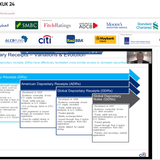The Odebrecht scandal has swept through Latin America with such force that can only be compared to a hurricane.
The epicentre of the scandal was Brazil, the largest country in Latin America, it but has quickly spread through the entire continent.
In 2016, the Brazilian company Odebrecht confessed to US and Swiss authorities of having spent around US$800mn on bribing key policy makers in 12 different countries, mostly in Latin America, in a bid to secure lucrative government contracts.
According to the company’s own statement, it paid US$345mn in Brazil, US$98mn in Venezuela US$92mn in the Dominican Republic, US$59mn in Panama, US$35mn in Argentina, US$33.5mn in Ecuador, US$29mn in Peru, US$18mn in Guatemala, US$11mn in Colombia and US$10.5mn in Mexico.
The Brazilian giant became the biggest construction company in the region, building everything from pipelines to highways, from airports to subways, from Mexico to Argentina.
As the investigations continues, Odebrecht’s fall has left a wake of unfinished infrastructure projects in its path and created a political earthquake that has threatened the future of many of the region’s popular leaders. It has also severely dampened growth prospects.
Peru, one of the countries where the bribery scandal has resonated more loudly, slashed its economic growth estimate for 2017 from 4.8% to 3.8%. The country was forced to cancel important infrastructure projects in which the Brazilian company was involved.
The outlook of Panamanian banks has been reduced by Fitch Ratings, among other things for their exposure to local banks implicated in the Odebrecht scandal.
In Brazil, many infrastructure projects have stalled as construction companies have been under tight scrutiny by the public, authorities, and even the banks. Overall, the scandal has created a wave of uncertainty not seen in years.
Corporates Getting Their Act Together
It may come as no surprise that investors are taking a closer look into Latin America’s enterprises, prompting some to redouble their efforts at ensuring their corporate governance practices are up to scratch.
Jose Bartolomeu, CFO of Viabahia Concessionaria de Rodovias S.A., a company that manages highways in Brazil, explained that the primary concern of the corporates is to avoid any possible connection with the scandal, and that many investors are now demanding to have “no corruption” clauses in all contracts and strengthened corporate governance measures in place.
“Local companies that didn´t have appropriate compliance programmes in place will be forced to implement stronger levels of compliance,” Bartolomeu explained.
A compliance and due diligence expert told Bonds and Loans that many investors see Latin America as a higher risk jurisdiction due to the prevalence of bribery and corruption. However, he added that the long-term consequences of the Odebrecht scandal might have a positive influence on the way Latin American corporates do business.
“High profile cases result in increased scrutiny. Increased regulatory action around the role of business in bribery and corruption have also resulted in investors utilizing due diligence to fully vet investments, third parties and customers from higher risk jurisdictions.”
“In addition to pre-investment due diligence, investors are also monitoring investments at regular intervals to ensure on-going compliance. Aside from compliance risks, investors are also increasingly conscious to the reputational damage bribery, and corruption scandals can inflict on brand integrity.”
The expert explained that investors and companies alike are strengthening due diligence practices, to ensure deal transparency.
“Background screening, due diligence, and know-your-customer practices are not new, but investors are strengthening their controls over compliance practices and corporate governance. Another area where we have witnessed additional attention is investors requiring their investments to adopt more stringent practices to ensure compliance. This “domino effect” means companies in regions like Latin America are adopting practices akin to that of their investors.”
But it won’t be enough in some cases. Many companies will have to send a strong message to their investors if they want to retain their trust.
“Investors will also want to see these measures put into practice with measurable results and periodic review and revision.”









